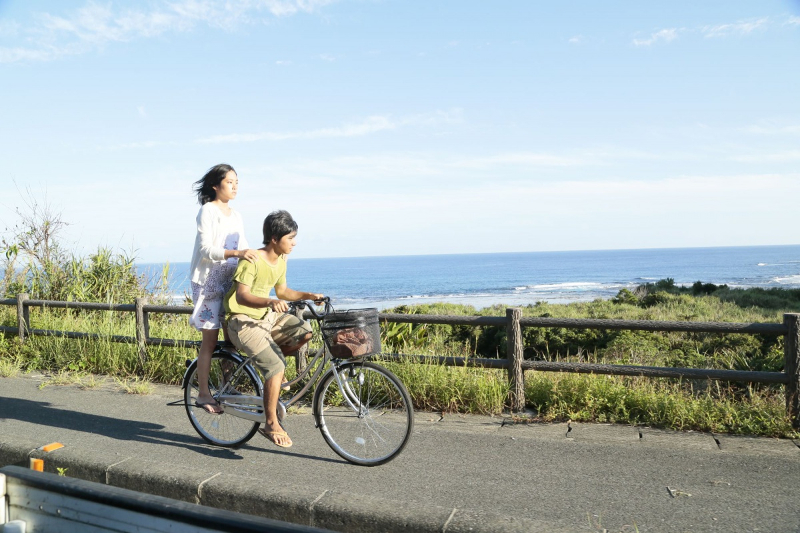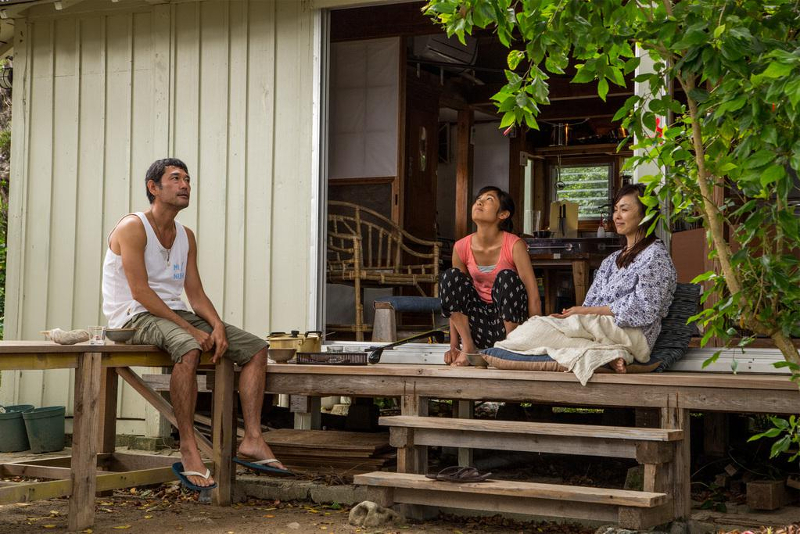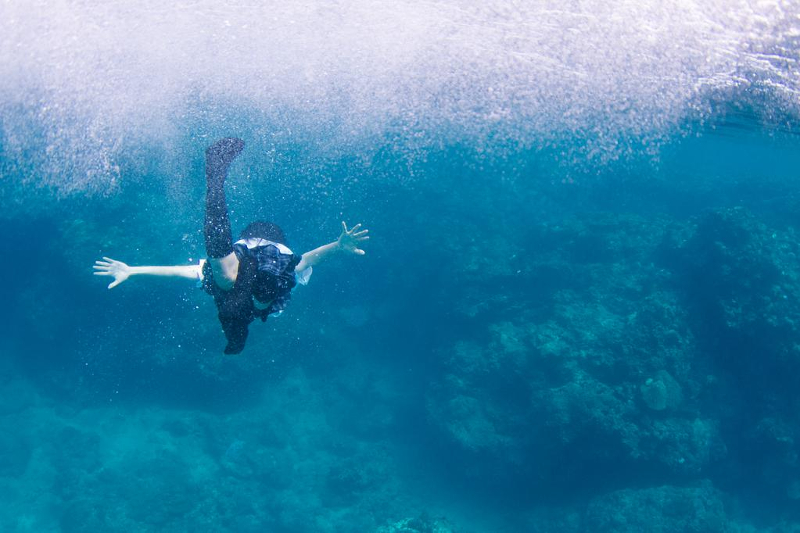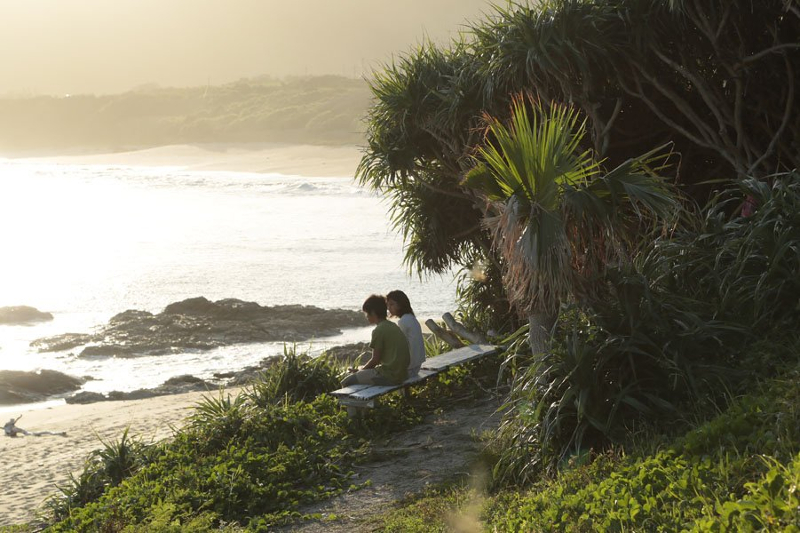Director – Naomi Kawase – 2014 – Japan / France – Cert. 15 – 119m
*****
Two childhood sweethearts living on an island beset by storms must come to terms with the mortality and fallibility of their mothers – on BFI Player (rental) and MUBI.
The ocean roars and then, just as suddenly, is quiet. The wind howls through the trees, then sunlight is glimpsed through tranquil branches. Welcome to the sleepy yet storm-battered island of Amami Oshima, part of the Southern Japanese Archipelago, a place of paradox and contradiction seen through the eyes of two teenaged friends and their families.
Kyoko (Jun Yoshinaga aka Junko Abe – Samurai Marathon, Bernard Rose, 2019) loves swimming in the sea. Her friend Kaito (Nijiro Murakami – Isle Of Dogs, Wes Anderson, 2018, Destruction Babies, Tetsuya Mariko, 2016) is less keen – he’d rather be in the safety of a swimming pool. She uses him and his bicycle to get around the island if and when he’s nearby. She is rather keen on him and would happily have sex. He can’t explain why, but is less enthusiastic about the idea.

Once we move on to their parents, there are fascinating observations regarding motherhood – especially in the light of adoption / unwanted pregnancy outing True Mothers (Naomi Kawase, 2020) – and, to a lesser extent, fatherhood.
Kyoko’s mum Misaki (Makiko Watanabe – 37 Seconds, Hikari, 2019, Foreboding, Kiyoshi Kurosawa, 2017, Himizu, Sion Sono, 2011, Love Exposure, Sion Sono, 2008, The Mourning Forest, Naomi Kawase, 2007), a shaman, is slowly dying of an incurable illness (it’s never stated, but it’s been diagnosed by the local doctor and could well be cancer). Kyoko has apparently found a lone visit to her mum’s temple (which we never see) helpful and much is made of the banyan tree in the backyard, about which explains her dad, her mum loves to lie down on the back porch so that she can glimpse the sun, light through the branches – and, as a shaman, glimpse something there of the connections between this life and the spirits of those who’ve departed into the next. When he’s just explained this, a beautiful, and to a Western viewer an almost pietà-like, sequence has her do exactly this only to be joined by her mum who rests Kyoko’s head in her lap, joined in turn by her dad Toru (Tetta Sugimoto – Departures, Yojiro Takita, 2008) who rests her mum’s head in his lap and then jokingly bemoans the lack of a lap in which to rest his own head.

Toru runs a modest restaurant (out of the premises? in a building nearby? it’s not clear) and the family’s work / life balance allows for an existence harmonious with nature and extended family. As mother is in the process of passing away, the family including uncles and aunts gather round and sing mystical / spiritual songs at her request.
Kaito is invited there too and dutifully attends. The life of Kyoko and her family, even at the end of her mother’s life, seems to represent a basic stability and continuity for him, a spiritual anchor point. That’s just as well because he fells ill at ease with the island, a place surrounded by often stormy seas in the shallows of which, as the narrative commences, he finds a tattooed male corpse floating inexplicably.
His separated father Atsushi (Jun Murakami – First Love, Takashi Miike, 2019, The Land Of Hope, Sion Sono, 2012, Himizu, Sion Sono, 2011, Gemini, Shinya Tsukamoto, 1999, Bounce Ko GALS, Masato Harada, 1997) lives in Tokyo, and a brief visit sees point of view shots travelling along three lane urban motorways as he rides pillion on his dad’s scooter, a cramped apartment festooned with images and photos of clients’ tattoos and a noisy restaurant, a huge contrast with the peace and tranquility of Kyoko’s domestic pietà or Kaito’s own bicycling. His father thrives on the Tokyo environment, describing the place with the words “warmth” and “abundance”.

Back on the island, Kaito struggles to come to terms with his own sexuality and his promiscuity of his mother Isa (Miyuki Matsuda – Audition, Takashi Miike, 1999), accusing her of wrongdoing for satisfying her physical needs. Somehow, though, this element proves less satisfying than the rest, as if Kawase was interested in Kyoko and her family and has thrown Kaito in for the sake of dramatic balance. A sequence involving the slaughter of a goat was removed by the UK distributor on release following the advice of the BBFC on grounds of animal cruelty. Those factors notwithstanding, there’s more than enough to enjoy here and the whole thing is profoundly moving.
Still The Water is on BFI Player (rental) and MUBI.
Trailer:
Original UK release: Friday, July 3rd, 2015.
